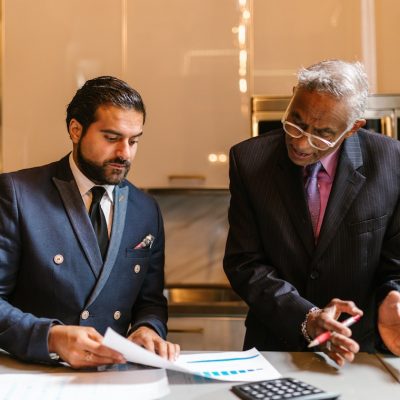Atlanta Dangerous Property Wrongful Death Attorney
Pursuing Justice and Restitution for Your Loss
In Georgia, visitors, tenants, and passersby expect properties to be safe, yet preventable hazards like unsafe structures, faulty wiring, or poor security too often lead to fatal tragedies. When a loved one dies due to a property owner’s failure to address known dangers, an Atlanta dangerous property wrongful death lawyer can help hold negligent parties accountable.
Deadly incidents from falls, fires, or crimes tied to neglected property conditions often stem from chronic under-maintenance, ignored complaints, or cost-cutting. Families may be entitled to compensation for funeral costs, lost income, emotional suffering, and, in severe cases, punitive damages but securing justice requires skilled legal action against owners, management, or insurers.
Having an experienced Atlanta dangerous property wrongful death attorney by your side can mean the difference between a dismissed claim and a just outcome. Our firm is relentless in pursuing accountability through rigorous investigations, expert analysis, and compelling advocacy. Fill out our form below to explore your legal options and receive guidance tailored to your case.
Contact a Dangerous Property Wrongful Death Lawyer Today!
Fill out the form below to schedule a free consultation. All our cases are handled on a contingency basis, so you do not pay us until we win.
Common Causes of Dangerous Property Wrongful Deaths in Georgia
Slip and Fall Hazards
Inadequate Security Measures
Fire Safety Violations
Elevator and Escalator Malfunctions
Toxic Exposure
Falling Objects
Why You Need a Dangerous Property Wrongful Death Attorney
Pursuing justice after a fatal dangerous property incident is a challenging experience, as property owners and their insurers often employ aggressive tactics to evade liability. The following factors underscore the critical need for a qualified wrongful death attorney:
- Establishing Negligence: Proving a property owner’s failure to maintain safe conditions requires detailed analysis. Your attorney partners with safety experts to identify breaches, such as ignored repairs or inadequate security measures.
- Rebutting Defensive Strategies: Defendants may argue the deceased was trespassing or negligent. Your counsel counters with compelling evidence, like visitor logs or prior complaints, to keep liability focused on the property owner.
- Optimizing Restitution: Your attorney quantifies immediate and long-term losses, including lost support and emotional harm, and seeks exemplary damages for gross negligence, ensuring comprehensive recovery.
- Navigating Legal Complexities: Premises liability involves nuanced standards, like duty of care variations for invitees versus trespassers. Your attorney ensures adherence to all legal requirements to fortify your claim.
- Proving Causal Nexus: Linking the hazard to the fatality demands robust evidence. Your counsel builds a clear narrative, using inspection records or expert testimony to defeat objections.
- Adhering to Statutory Deadlines: Georgia’s filing constraints are rigid. Your attorney acts decisively to preserve your claim’s viability under Georgia Code § 9-3-33.
- Alleviating Client Burden: By managing evidence collection, insurer negotiations, and potential litigation, your attorney frees you to prioritize personal recovery while they secure justice.
An Atlanta dangerous property wrongful death attorney work hand in hand with expert witnesses to hold negligent property owners and insurance companies accountable while providing closure to grieving families.
Why Trust Our Wrongful Death Lawyers?
Focused Experience
Client-Centered Approach
Proven Results
No Upfront Fees
Comprehensive Investigations
Trial-Ready Advocacy
Speak to a Dangerous Property Wrongful Death Lawyer today!
Our attorneys handle all forms of wrongful death cases throughout Georgia. We’re only dedicated to wrongful death claims and lawsuits, ensuring you receive thorough attention and care during your time of grief. Do not wait any longer to speak to an attorney. Fill out the form below to schedule a free consultation. All our cases are handled on a contingency basis, so you do not pay us until we win.
Settling vs. Going to Trial: What Families Should Know
After filing a wrongful death claim, families often wonder whether they should settle or go to trial. Both paths have important implications, and our role is to guide you toward the best decision based on your unique situation.
When a Settlement Might Be the Best Option:
- Faster Resolution: Settlements can resolve cases much more quickly than trials, allowing families to find closure sooner.
- Privacy: Settlements are private agreements, sparing families from public court proceedings.
- Reduced Emotional Strain: Trials can be emotionally taxing; settlements avoid putting families through extended litigation.
- Guaranteed Outcome: A settlement ensures you receive compensation, whereas trials come with uncertainties.
When Going to Trial May Be Necessary:
- Insurance Companies Offer Lowball Settlements: If the defense refuses to offer fair compensation, a trial may be necessary.
- Gross Negligence Needs Public Accountability: Some families choose trial to hold negligent parties publicly accountable.
- Disputed Liability: If the other side disputes responsibility for your child’s death, a trial allows evidence and witnesses to be presented before a judge or jury.
Our Atlanta wrongful death attorneys will always prioritize what’s best for your family by negotiating fiercely when possible, but ready to fight in court when justice demands it.
Compensation for Dangerous Property Wrongful Death Claims Under Georgia Law
While no financial award can restore your loved one, restitution under Georgia law mitigates economic hardship and formally acknowledges the deep personal toll of your loss. Comprehensive recovery encompasses both tangible and intangible damages, ensuring your family’s stability. The following categories are available:
- Funeral and Burial Expenses: Costs for memorial services, caskets, cremation, or headstones can be substantial, adding strain during an already difficult time. These expenses are compensable, ensuring that honoring your loved one’s memory does not deepen your financial burden. Our attorneys compile detailed documentation receipts, contracts, and invoices to secure full reimbursement, verifying each expense for accuracy.
- Medical Expenses Incurred Prior to Death: If your loved one received emergency treatment following the incident such as trauma care, surgeries, or hospitalization these costs are recoverable under Georgia Code § 51-4-5. Examples include ambulance fees, intensive care, or diagnostic tests. Your counsel cross-references billing statements with medical records to ensure every charge is accounted for, preventing discrepancies that insurers might exploit.
- Loss of Earnings and Economic Support: Your loved one’s income, benefits, or household contributions often underpinned your family’s financial security. Compensation covers immediate lost wages and extends to projected lifetime earnings, retirement plans, health insurance, or non-monetary support like caregiving or home repairs. Economic experts may calculate these losses, factoring in career trajectory, inflation, and regional wage trends to present a thorough valuation to the court, ensuring your family’s future is protected.
- Loss of Consortium and Companionship: The emotional void left by a spouse, parent, or child is profound and enduring. Damages for loss of consortium address the absence of love, guidance, mentorship, and shared experiences, whether a partner’s companionship, a parent’s nurturing, or a child’s potential. Your attorney collaborates with you to convey this loss through personal testimonies, family videos, letters, or documented milestones, ensuring the court grasps the relational devastation.
- Emotional Distress and Suffering: The psychological impact of grief, anxiety, depression, or diminished quality of life constitutes a significant injury. Restitution for emotional distress validates your pain, acknowledging sleepless nights, fractured family dynamics, and the challenge of facing anniversaries without your loved one. Your counsel may incorporate psychological evaluations, therapy records, or personal journals to quantify this suffering, advocating for substantial recovery that reflects your lived experience.
- Punitive Damages for Egregious Conduct: In cases of willful or reckless negligence such as a property owner ignoring repeated hazard reports or disabling safety systems, punitive damages may be pursued under Georgia Code § 51-12-5.1 to penalize and deter. Your attorney proves intentional misconduct, leveraging evidence like internal memos or whistleblower accounts to justify these awards, ensuring accountability extends beyond compensation to prevent future tragedies.
What Clients Say About Our Firm
Rebecca Harris
- Wrongful Death
Scott Smithwick
- Personal Injury
Debendra Deba
- Wrngful Death
Lauren Sulkis
- Wrongful Death
Kaiser Reed
- Wrongful Death
Denver Camden
- Wrongful Death
How to Hire the Best Atlanta Dangerous Property Wrongful Death Lawyer
Choosing the best Atlanta Dangerous Property Wrongful Death Lawyer is crucial to ensuring you receive the justice and compensation your family deserves. The lawyer you select will guide you through the complex legal process and help you determine whether to settle or go to trial based on your unique circumstances.
Key Factors to Consider When Choosing a Wrongful Death Lawyer:
- Experience with Wrongful Death Cases: Ensure the lawyer specializes in wrongful death cases, particularly those involving infants, as they require a unique approach and deep understanding of medical and product liability issues.
- Track Record of Success: Look for a lawyer with a proven history of securing favorable verdicts and settlements in similar cases. Their success rate is a strong indicator of their ability to handle complex claims effectively.
- Compassion and Sensitivity: Infant wrongful death cases are emotionally charged. Your lawyer should demonstrate empathy, offering you the emotional support and understanding you need during this difficult time.
- Willingness to Go to Trial if Necessary: While many cases settle, some need to be fought in court. A strong lawyer will not back down if it’s in your best interest, especially if the defendant is offering an unfair settlement.
- Clear Communication and Transparency: Your lawyer should keep you informed at every stage, explaining the legal process in a way that’s easy to understand. They should also provide honest assessments of the case, including the potential outcomes.
By choosing the right wrongful death lawyer, you ensure that your family’s case is handled with the respect, expertise, and dedication it deserves, giving you the best chance at securing justice and closure.
Procedure for Initiating a Dangerous Property Wrongful Death Claim in Atlanta
Commencing a dangerous property wrongful death claim demands a disciplined and strategic approach, integrating investigative precision with legal expertise to construct a robust case. The procedural framework includes:
- Verification of Claimant Eligibility: Confirming your legal authority to file is the foundational step, ensuring alignment with Georgia’s claimant hierarchy to preempt procedural challenges that could derail the claim.
- Retention of Specialized Counsel: Engaging an attorney with expertise in premises liability and wrongful death litigation is paramount. Your counsel evaluates the case’s merits, identifying actionable breaches such as failure to repair a known hazard or neglecting security protocols and outlines a tailored strategy to pursue accountability.
- Comprehensive Evidence Acquisition: Your attorney assembles an extensive evidentiary portfolio, encompassing maintenance records, property inspection reports, incident logs, photographs of the hazard, and witness statements. Safety experts, structural engineers, or code compliance specialists may be consulted to elucidate violations, such as unaddressed building defects or non-compliance with Georgia Code § 44-7-13 for landlord duties, forming the claim’s backbone.
- Compliance with Statutory Deadlines: Adherence to the two-year filing limitation under Georgia Code § 9-3-33 is non-negotiable. Your counsel calibrates the timeline to submit well in advance, allocating sufficient preparation to avoid errors while ensuring robust case development.
- Preparation of the Legal Petition: The filing document articulates the property owner’s duty of care, the specific breach (e.g., failure to fix a collapsing structure), the causal link to the fatality, and the resultant damages. Your attorney ensures precision and compliance with procedural mandates, such as proper notification of defendants, to forestall dismissal.
- Substantiation Through Expert Testimony: Experts in building safety, fire codes, or criminology clarify complex issues for the court, such as the foreseeability of harm from an unsecured gate or the consequences of neglected repairs. Your counsel selects authoritative professionals whose credentials withstand scrutiny, reinforcing the claim’s credibility.
- Negotiation or Litigation for Resolution: Many claims resolve through settlement, but trial readiness is essential to counter insurer resistance. Your attorney engages defendants with evidence-backed demands, rejecting inadequate offers with resolve. Should litigation prove necessary, they advocate vigorously in court, presenting a compelling case to secure equitable restitution.
Establishing Liability in a Wrongful Death Claim
Securing a favorable outcome in a dangerous property wrongful death action hinges on satisfying four essential legal elements, each substantiated through rigorous evidence and expert analysis. The requisite components are:
- Duty of Care: The property owner’s obligation to maintain safe conditions varying by the deceased’s status as an invitee, licensee, or trespasser must be established. For invitees, like shoppers or tenants, the duty is highest, requiring reasonable care to prevent harm, as outlined in Georgia Code § 51-3-1. Documentation, such as lease agreements or event invitations, anchors this element.
- Breach of Duty: Evidence must demonstrate that the owner failed to address a known or foreseeable hazard, such as ignoring a reported gas leak or neglecting broken lighting. Maintenance records, prior complaints, or safety violation citations are pivotal in proving negligence, showing the owner’s inaction despite awareness.
- Causation of Fatality: The breach must be directly linked to the death, a complex task given potential defenses like third-party interference. Your attorney uses forensic reports, coroner’s findings, or expert reconstructions to establish causation for instance, showing how a faulty elevator caused a fatal fall, countering arguments of unrelated factors.
- Quantifiable Damages: The claim must enumerate tangible and intangible losses, including economic impacts like lost income and non-economic harms like emotional distress, under Georgia Code § 51-4-2. Comprehensive documentation pay stubs, funeral invoices, family testimonies, or mental health records ensures a holistic valuation, capturing the full scope of your loss.
- Adherence to Evidentiary Standards: All evidence must conform to judicial requirements for admissibility, per Georgia Code § 24-14-1. Your counsel curates credible materials, from surveillance footage to expert depositions, ensuring procedural compliance to withstand defense challenges.
- Timely Filing: Submission within the statutory limitation period is critical, with no exceptions absent extraordinary circumstances. Your attorney coordinates efforts to meet this threshold without compromising case quality, ensuring timely filing.
- Neutralization of Defenses: Defendants may allege the deceased’s negligence, such as ignoring warning signs. Your counsel refutes such claims with factual rebuttals, leveraging Georgia Code § 51-11-7 (comparative negligence) to minimize their impact and preserve your recovery.
Speak with a Wrongful Death Lawyer Today!
Location
Drop Us a Line
Trust us to represent your families best interest throughout Georgia.
Locations We Serve in Georgia
We proudly serve families throughout Atlanta and across Georgia. In Atlanta, we assist clients in areas such as Downtown (30303), Midtown (30308), Buckhead (30305), Old Fourth Ward (30312), Inman Park (30307), West End (30310), Virginia-Highland (30306), Peachtree Heights East (30327), Grant Park (30315), and Chastain Park (30342). We also represent clients in cities like Marietta (30060), Roswell (30075), Sandy Springs (30328), Alpharetta (30004), Lawrenceville (30046), Gwinnett (30043), Augusta (30901), Savannah (31401), Columbus (31901), and Athens (30601). No matter where you are in Georgia, we’re here to provide expert legal support for your wrongful death case.









